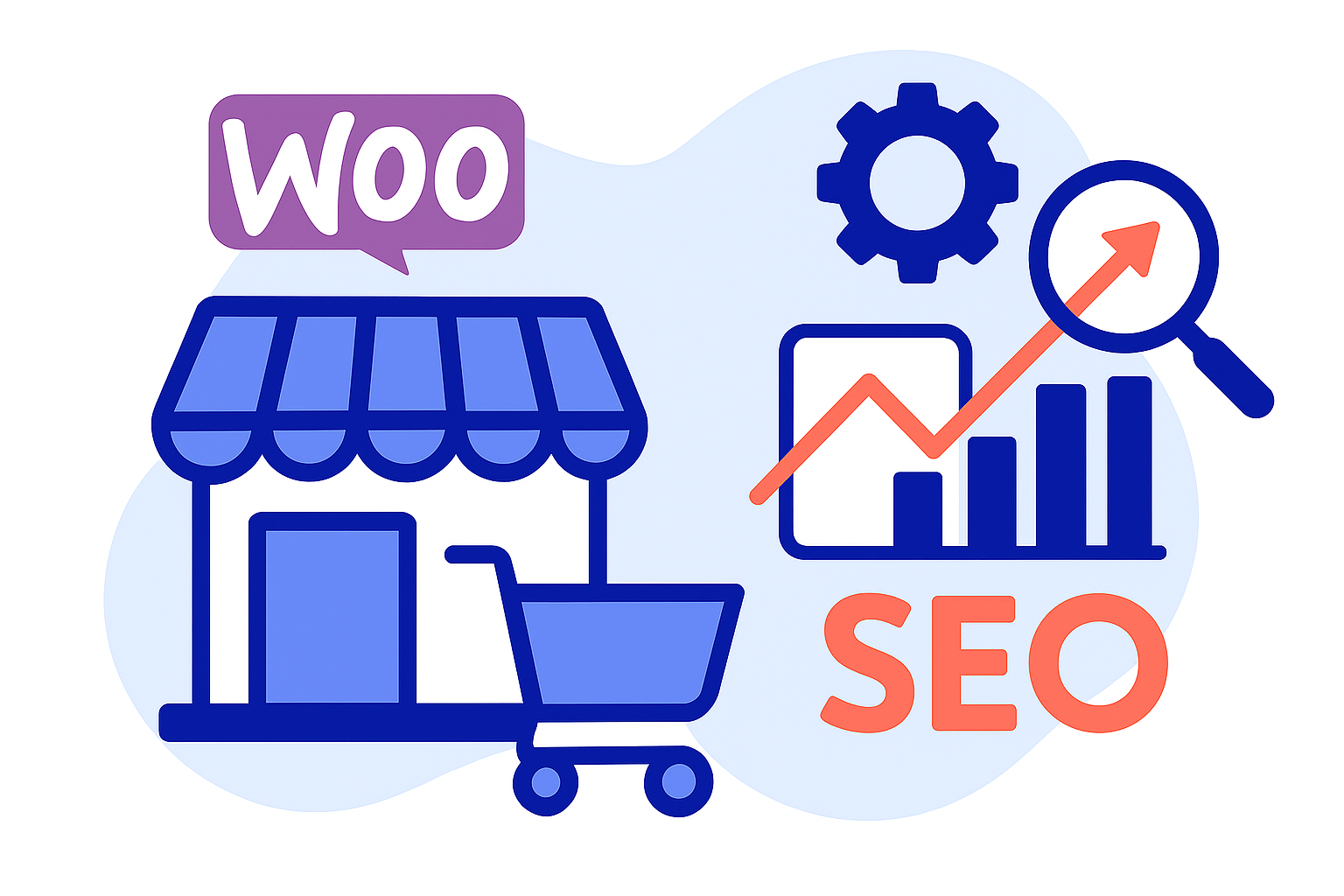
How WooCommerce can give your online store a SEO advantage?
Discover how WooCommerce supports scalable and performance-driven SEO strategies for online stores through flexible architecture and WordPress integration.
WooCommerce has established itself as one of the most effective platforms for e-commerce search engine optimization (SEO). Built on WordPress, it combines strong technical foundations with expansive plugin support, offering a powerful set of tools for enhancing search visibility, improving user experience, and supporting scalable content strategies. This article outlines key functionalities and implementation methods that make WooCommerce an ideal platform for SEO-conscious online retailers.
SEO-Friendly Architecture from the Ground Up
WooCommerce benefits from WordPress’s clean permalink structures, customizable URLs, and taxonomy systems. These features simplify site organization and content indexing, contributing to more accurate and frequent crawling by search engines. Unlike many closed platforms, WooCommerce provides full access to these configurations, enabling a tailored approach to technical SEO.
Custom Metadata and Content Precision
Each product page within WooCommerce can be optimized individually. Users can edit meta titles, descriptions, image alt tags, and URL slugs directly—allowing for detailed keyword targeting and enhanced SERP performance. Product categories and tags further support topical relevance and structured content delivery.
SEO Plugin Compatibility and Feature Enhancement
WooCommerce supports seamless integration with leading WordPress SEO plugins. These tools enable essential functions like automatic sitemap generation, breadcrumb navigation, schema markup, and Open Graph support. Additional modules often extend optimization features specifically for product pages, including schema for pricing, availability, and reviews.
Built-In Support for Structured Data
Structured data allows search engines to better understand content context. WooCommerce product pages can automatically incorporate schema for reviews, pricing, inventory, and more—making rich results in search listings far more attainable. This directly improves visibility and click-through rates.
Fast, Mobile-Responsive Performance and Technical SEO Control
Modern SEO requires fast-loading, mobile-optimized websites. WooCommerce themes and plugins support performance enhancement through caching, code minification, and responsive design frameworks. This ensures compatibility with Google’s Core Web Vitals and mobile-first indexing priorities. In addition to performance, WooCommerce, when used with SEO plugins, allows precise control over indexation settings such as noindex tags and robots.txt rules. These are essential for managing how search engines crawl filterable attributes, product variants, or staging environments. Canonical tag management further prevents duplicate content issues, helping preserve link equity and maintain a clean and efficient crawl budget.
Strong Support for Content Marketing and Internal Linking
Content remains a core pillar of effective SEO, and WooCommerce leverages the blogging power of WordPress to complement product offerings with articles, guides, and landing pages. This enables stores to target informational keywords and build topical authority around their niches. WooCommerce also facilitates robust internal linking through related products, upsells, and cross-sells, which help distribute SEO value throughout the site. Well-structured internal links within content modules, blog posts, and navigation menus guide both users and search engines, enhancing crawlability and reinforcing site hierarchy.
Reviews and User-Generated Content for SEO Boost
WooCommerce includes native functionality for customer reviews, which not only enhance trust and credibility but also contribute to on-page keyword density and structured data. These reviews can increase product relevance and support organic visibility.
Scalability Without SEO Compromise
WooCommerce is adaptable across business sizes—from startups to enterprises. As a self-hosted solution, it permits full control over SEO-critical elements like hosting performance, domain structure, and custom development. This makes long-term growth and international SEO strategies feasible and effective.
Transparent Costs and Full Ownership
Unlike SaaS platforms, WooCommerce offers open-source flexibility. Merchants choose their stack—whether that includes premium SEO tools or custom development—ensuring investments align with strategy rather than platform constraints.
Conclusion
WooCommerce is uniquely suited for businesses that view SEO as a growth engine. From its deep customization options and extensive plugin integrations to its scalable architecture and content tools, WooCommerce supports a robust and forward-thinking SEO approach. For online retailers aiming to compete in organic search and deliver strong user experiences, WooCommerce is a strategic, adaptable, and future-ready choice.

